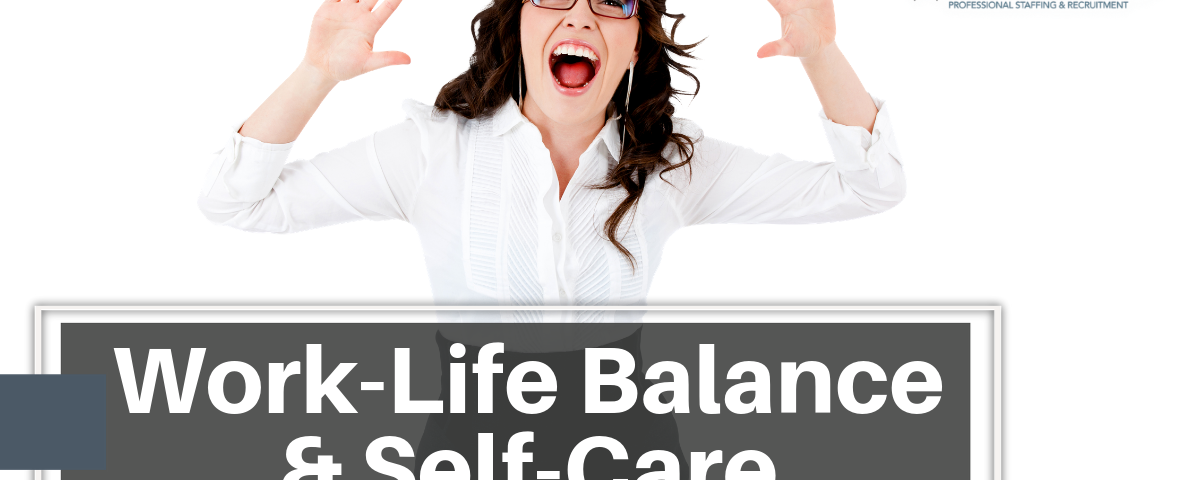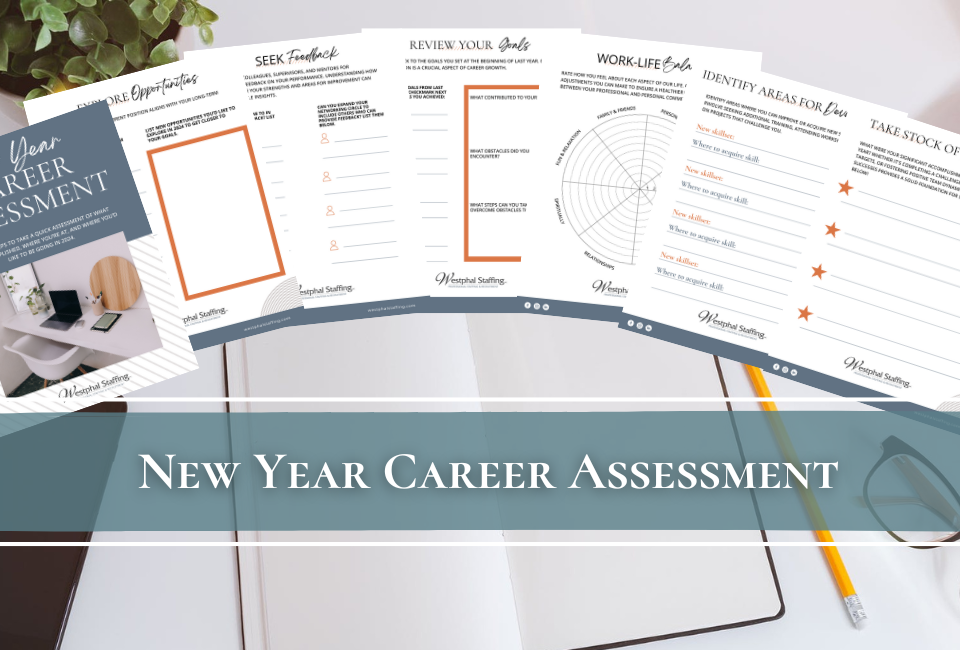
Jobs that Click
October 17, 2018
Retain Top Talent TODAY
January 14, 2019Did you know that 1 in 4 employees has missed work because of stress? According to that same national poll by the American Psychological Association around two-thirds of the responders have experienced significant stress at work. That’s not good! Over time, stress weakens our immune systems, makes our hearts worker harder, causes migraines, creates digestive issues, and can even trigger pain all over your body.
Stress is Hurting Your Body & Mind
Stress affects your body in MANY ways. Some are obvious, but some sneak up on you over time. Here are just a few of the ways stress can hurt you:
Increases risk of heart attack or stroke
Frequent or chronic stress will make your heart work too hard for too long. As you can image, this starts to take a toll on the body, increasing your risk for hypertension, heart attack, or stroke. These conditions can sneak up on you and it’s very important to practice self-care to reduce your risk of heart attack and stroke.
Causes inflammation
You might not even notice it at first other than you just don’t feel “right,” but the stress of work is increasing inflammation throughout your body. This increase in inflammation is thought to be an underlying cause in many ailments, including heart disease, diabetes, autoimmune disorders, and pain.
Stress also makes us more sensitive to pain. With an increase in muscular tension (tight shoulders, stiff neck, and all of your muscles overtime) you can expect all-over body pain, headaches, and migraines.
Triggers digestive issues
You’ve probably experienced “butterflies” or nausea with stress. Maybe you’ve even had ulcers or similar pain from chronic stress. Many don’t know that it can get even worse. Chronic stress can affect digestion and how you absorb nutrients. It can also affect how quickly food moves through your body, leaving you with either constipation or diarrhea. Plus, it causes acid reflux and can intensify symptoms of irritable bowel syndrome and inflammatory bowel disease. Sounds horrible!
Increases risk of sickness
Stress weakens your immune system, making you sick more often. This makes you vulnerable to a variety of ailments from colds to backaches to heart disease. And it feels like the sickness doesn’t hit until you FINALLY have a break, right? It comes and gets you while on vacation or during the holidays when you finally get to relax. Take care of yourself NOW before that happens!
Overwhelms your brain
Many of those who suffer from chronic stress will find that they have a hard time staying focused and concentrating on work. They also have a hard time staying on task and coming up with solutions during the day. How frustrating! You’re already stressed and then feeling like you might be under-performing makes it all worse.
It breaks our hearts to hear stories of friends, family, and candidates who are suffering like this at work. It’s time to stop the assault on your body and your mind! Use the suggestions below to practice self-care while you’re at work and to tip the balance scales from work to home.
Protect Yourself with Work-Life Balance & Self-Care
We spend so much time at work. It doesn’t make sense to ONLY practice self-care before/after work and on the weekends. You need to practice it during work hours as well. In fact, this is when you need it most.
Yes, work is your priority while you’re at work, but taking care of yourself should be your MAIN priority no matter where you are at! There are small things you can do throughout the day to practice self-care and to help you find that work-life balance. Plus, they are things you can do while still staying focused on the job at hand. Eventually you’ll find that you’re more productive, come up with solutions faster, and have better communication with coworkers and managers.
Balancing work, family, and personal life has always been challenging for employees. The pressure to find this balance can compromise the quality of work performance, quality of family time, and your overall emotional and physical well-being.
Finding the Balance at Work
1. Set manageable goals each day
Ideally, you want to set your priorities before you leave for the day. You don’t need to spend a lot of time doing this; just jot down a quick list of your top priorities for the next day. Then, when you arrive the next morning, make sure you don’t let other things distract you. Sticking to your list will give you a bigger sense of accomplishment at the end of the day. As you continue to do this, start focusing on being realistic with deadlines and letting go of perfectionism. A lot of procrastination and over-thinking can accompany the need to make sure everything is perfect. Eliminating this will help you work faster.
2. Take a break
Taking a break is important, especially when you feel like you don’t have the time to take a break. Go for a walk around the building (preferably outside) or grab a fresh cup of coffee. Something that gets you away from your desk and gives your brain a break is all it takes. If you can’t leave then just stand up and stretch. This literally takes one minute. If you’re already standing, then find ways to stretch your legs and lower back. You won’t regret this! You’ll feel fresh, renewed, and ready to take on the next task.
3. Make your space comfortable and tailored to you
Look around your work area and think of ways to tailor it to YOU. Try adding a lamp to your desk or a pillow for your back. Hang inspirational and positive quotes if you have cube walls. If you have a work locker, decorate it with photos. Listen to music at your desk to help shut off the noise from the outside world. It can also give you an energetic boost by playing upbeat, positive music. (Make sure to use earbuds or headphones so you don’t disrupt others.) Also, take time to adjust your seat and computer screen to the right height so you’re not hurting your posture.
4. Always take a “lunch”
Taking a lunch doesn’t just mean finding a place to eat. Use this time as your own “personal hour” and use it for YOU. Go to the gym for 30 minutes, have coffee and people watch, meditate in your car or at a meditation center; use it however you need to. You can still eat at your desk later. Soon it will become a daily ritual that you look forward to each day!
5. Have a heart-to-heart with your boss
Let your boss know if you’re in a bind or overwhelmed. But make sure you don’t complain! Come to the meeting with solutions and alternatives such as asking for flexibility. If you need to work from home one day as week or adjust your hours to better fit the routines of your family, then ask for it. If your manager is hesitant or if your company has never tried flexible work arrangements before, then ask for a trial period. If you feel so overwhelmed that you can’t think of solutions, then simply let your boss know that you’re looking for their expertise and you’d like to get perspective from someone else’s viewpoint. If you approach it in a positive light, without complaining, then you’re more likely to walk away with a solution that benefits you and the whole team.
Finding the Balance at Home
1. Unplug from work
If you have work email on your phone, then it might be time to uninstall it. At least disconnect from it for awhile, until things are feeling better. If coworkers or clients reach out to you via text or social media messaging, then it might be best to turn your phone off and put it away for the evening. There’s a lot to be said for just shutting off your phone and enjoying the moment!
2. Have a heart-to-heart with your family
It might be time to ask your family for help. You’d be amazed at the chores your kiddos can do – even when they’re younger! They might not be able to run to the grocery store or cook, but your significant other can! Let your family know that you’re overwhelmed and it’s time to divide home responsibilities.
3. Keep up with friends
Stay in touch with the friends who provide a strong support system for you. You don’t need to dedicate hours to staying in touch. Meet for coffee on a weekend morning, start a private Facebook group where you can chat about anything and everything, or simply email to stay in touch. And while you’re at it, you need to stop wasting time on people who are negative and leave you drained. Focus your time only on people who lift you up and keep you positive.
4. Take care of your body and mind
Why is this one always the hard one? We ALWAYS have excuses for this! No time to workout, no time to meditate, etc. Well, if your phone is still off and you haven’t been distracted by work, maybe you’ll start to find that extra time! It is SO IMPORTANT to stay active and eat healthy. Meal prep when you can. Take time for the gym (maybe during lunch?). Download a meditation app on your phone or play one from YouTube – get the whole family involved! It’s very easy to do yoga and meditation with your family, and it doesn’t require too much time.
Self-Care All Day
The biggest point to remember when trying to find work-life balance and practicing self-care is that nothing will get better without action from you. You’re the only one who knows what you need. So, make sure you’re taking good care of yourself during the work week and don’t feel bad about making this a priority in your life. Taking a few minutes during the day for yourself will make you a better employee. After all, you can’t expect to deliver top-quality work if you’re constantly exhausted or sick.
If all else fails. It might be time for a new job. If that’s the road you’re traveling down, then start by looking at job openings listed with Westphal Staffing. For a personalized consultation, contact us today to speak with a recruitment specialist. We’ll talk about your skillsets, what you’re looking for, and any opportunities that might be a good fit for you. In just a few minutes we can start planning your next adventure!







